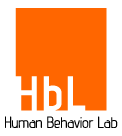Leveling Up: How Gaming Boosts Decision Making and Cooperation
Key Facts:
- Multiplayer gamers develop workplace skills like leadership and problem-solving.
- Gamers report improved patience and a “puzzle-solving” mindset in their jobs.
- Coaching and feedback skills from gaming often transfer to professional environments.
So maybe the naysayers and detractors of online gaming and its ill effects on youth need to stand down. That’s what science is telling us in a new report in the journal Human Resource Development International from Melika Shirmohammadi, assistant professor at the UH College of Technology.
The article reports that – contrary to popular belief – massive multiplayer online gamers learn by gaming and their skills in the workplace are enriched by those seemingly endless hours previously thought of as frittering away time.
“Online gaming often gets a bad reputation, but our study reveals a different story. We found that gaming can actually help people develop valuable workplace skills,” reports Shirmohammadi.
“These skills include problem-solving, teamwork, leadership, and even self-confidence. Our research shows that gaming, when done in moderation, can be a way for people to grow both personally and professionally.”
Gaming truths
Whether they know it or not, companies are already hiring an enormous amount of multiplayer online gamers. The math on this is simple. Millions of people play “massively multiplayer online” or MMO games, in which they play together in a virtual world. The top three games – World of Warcraft, Destiny 2, and Final Fantasy – claim 150.6 M, 49.7 M, and 60.3 M total players respectively.
“The purpose of the present study was to examine hobby – an understudied but prevalent part of the nonwork domain – to understand if and how MMO gaming positively enriches employees’ work domain,” said Shirmohammadi.
Shirmohammadi’s team conducted a qualitative study among 23 employed MMO gamers who had an average of 20 years of video gaming experience and had played MMO games for at least 10 years.
The MMO games examined (including World of War Craft, EVE and Final Fantasy) require players to coordinate tasks to achieve collective goals, respect team norms (e.g., arriving on time for missions), collaborate with others as part of a team, and avoid reckless or uncalculated behaviors that would jeopardize the mission.
Game More, Worry Less
Among the positive outcomes of the research, gamers reported viewing work as solvable puzzles, and their experience resulted in improved patience in encountering problems and encouraged them to persevere in solving them.
One participant, an engineer, said: “I just see a puzzle and I’m motivated to solve it. So, it’s affected, I guess, my mindset in that way, such that I look at things as solvable…”
Other players say they developed self-confidence through game playing because they feel good about the level of success in the online gaming world. Still others reported developing self-awareness as they received feedback on their own skills and how they played alongside team members.
Gamers’ ability with coaching skills – such as evaluating performance, providing feedback, giving instructions and inspiring others – was also traced to their gaming. Several participants mentioned the similarities between gaming and work that made such skills transferrable.
An IT specialist, described it this way: “I deal with a lot of new people [at work]. Since I kind of go out of my way in game to do all the coaching, I’ve become ahead of some of colleagues in explaining how to do certain things [to new employees] …”
Gaming for the good
“Our study extends the understanding of nonwork-to-work enrichment to the MMO gaming context and reveals how a hobby, as an understudied subdomain of life, could benefit work,” said Shirmohammadi.
As one famous gaming quote says, “Failure doesn’t mean the game is over; it means try again with experience.”
Apparently true, especially in the professional world.
About this gaming and decision-making research news
Learning by gaming: nonwork-to-work enrichment among successful massive multiplayer online gamers
Online gaming is stereotypically associated with negative outcomes, partially due to social stigmas. Given the large population of massive multiplayer online (MMO) gamers, in this qualitative study, we explored if and how gaming resulted in positive outcomes by enriching employees’ work.
To do so, we interviewed 23 employed adults with extensive gaming experience. Our analysis revealed that MMO gaming resulted in several learning outcomes that were directly related to general workplace skills.
We categorised these learning outcomes as affective (i.e. viewing work as solvable puzzles, developing self-confidence, developing self-awareness), behavioural (i.e. leading and working with a team, coaching and developing others, developing social connections, conflict resolution), and cognitive (i.e. gaining knowledge; goal setting, strategising, and planning; adaptability and agility; and problem-solving).
Also, we highlighted the social and individual factors that played a role in how learning outcomes were transferred from gaming to work.
Our findings broaden the limited scholarship on employee enrichment experiences, extending our understanding of how an individual’s hobby, as an understudied and critical part of the nonwork domain, is associated with the work domain.
Our study challenges the common negative stereotypes about gamers and advocates the potential enrichment of workplace skills resulting from gaming during nonwork time.
We specialize in High-performance Human Behavior training
Working on the humans that grow your business | High-performance Human Behavior training | I teach corporations & employees how to hack into humans using Behavior & Persuasion. I work with Pharma | Finances| Banking |Insurance| Sales| AI-Language & Behavior Economics
